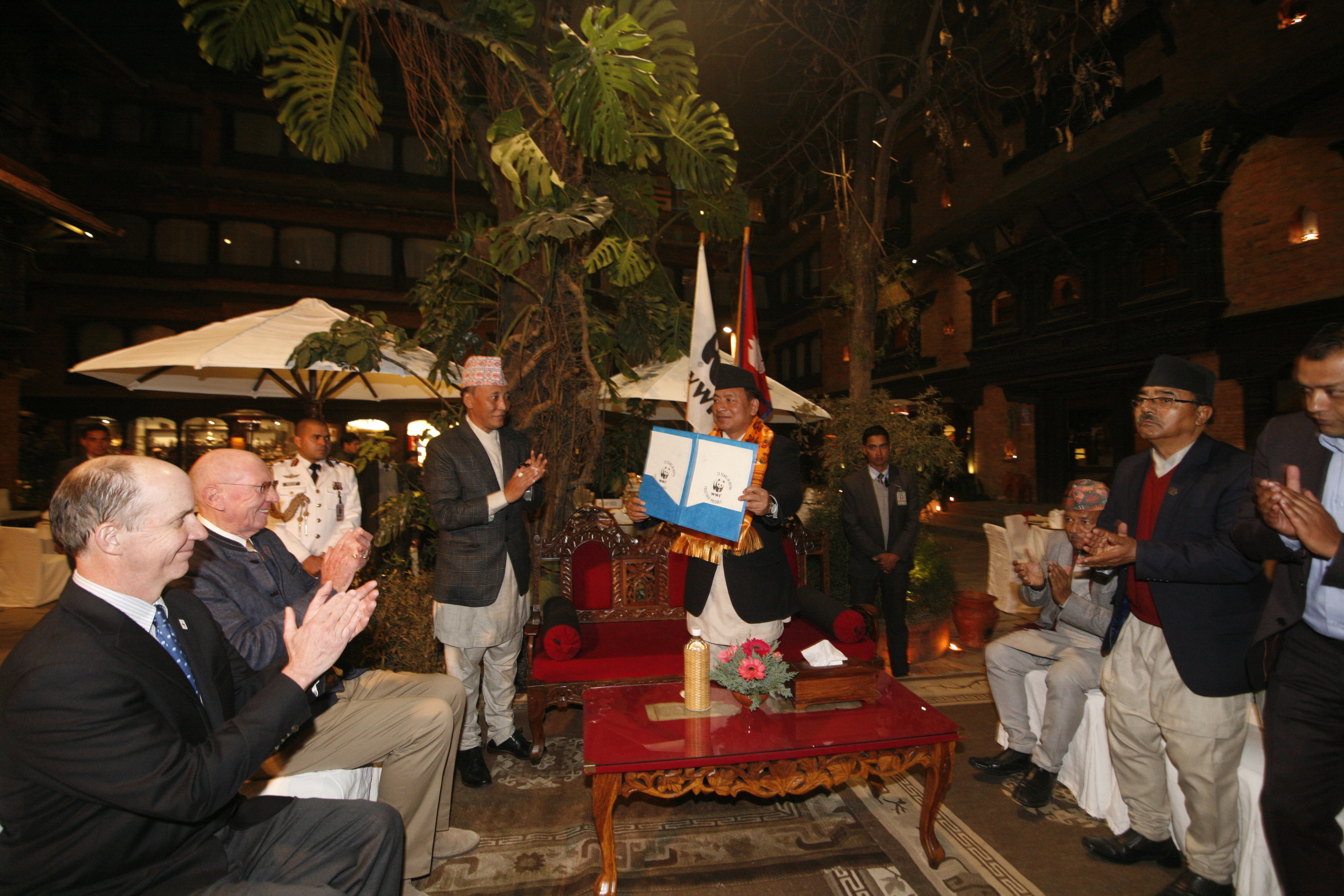Posted on February, 14 2018
Kathmandu, Nepal - WWF Nepal announced its 25th Anniversary Year celebration in a formal event on 12 February 2018. The announcement was made by the Rt. Honorable Vice President of Nepal Nanda Kishor Pun through an unveiling of the 25th Anniversary logo of WWF Nepal. Various distinguished dignitaries were present at the event including ministers, senior government officials, board members of WWF US, and ambassadors at this critical milestone.

Rt. Honorable Vice President of Nepal Nanda Kishor Pun unveils the 25th Anniversary logo of WWF Nepal. © WWF-Nepal
Honorable Gagan Thapa, Parliamentarian and WWF TGG Mentor in his keynote speech congratulated WWF Nepal on its 25th Anniversary Year celebrations. He stated that with Nepal emerging from a decade long political transition, this was a golden time for the country to move towards a path of prosperity, stressing on the importance of conservation going forward. He emphasized that while many developing countries in the world are losing their forests, Nepal is increasing it, with forest coverage at 44%. He also underscored Nepal’s progress towards doubling tiger numbers in the country; stating that this would not have been possible without organizations such as WWF Nepal which have played a crucial role in connecting people and the government for the cause of conservation.
Neville Isdell, Chairman of the Board of Directors of WWF US voiced his appreciation of WWF Nepal’s work in conservation and its success in the WWF network, meanwhile expressing his happiness that WWF US board could be a part of WWF Nepal’s 25th Anniversary Year celebrations.
Carter Roberts, President and CEO of WWF US expressed that the future of conservation in Nepal is bright and stressed upon the continued support of WWF US towards WWF Nepal and towards the sustainable development of the country.
Dr. Ghana Shyam Gurung, Country Representative of WWF Nepal reinforced WWF Nepal’s commitment towards its mission of stopping the degradation of Nepal’s natural environment, and building a future in which people live in harmony with nature. He stressed on three major areas of work for the organization going forward; striving for zero trade and transit of illegal wildlife parts in addition to zero poaching, working towards becoming a model for sustainable green infrastructures, and ensuring responsible tourism which will be a key economic pillar in helping Nepal achieve a middle-income country status.

Rt. Honorable Vice President of Nepal Nanda Kishor Pun with senior government officials and distinguished WWF US Board Members. © WWF-Nepal
While WWF has been operating in Nepal since 1961, the WWF Nepal office was officially established on 19 May 1993. Through these 25 years of conservation work WWF Nepal has been able to establish itself as a trustworthy conservation partner to the Government of Nepal and its people.